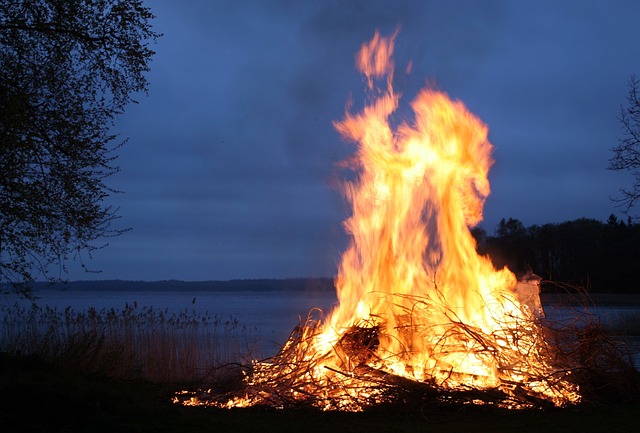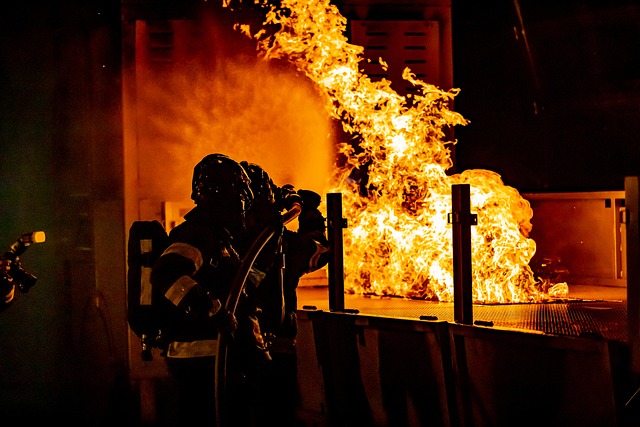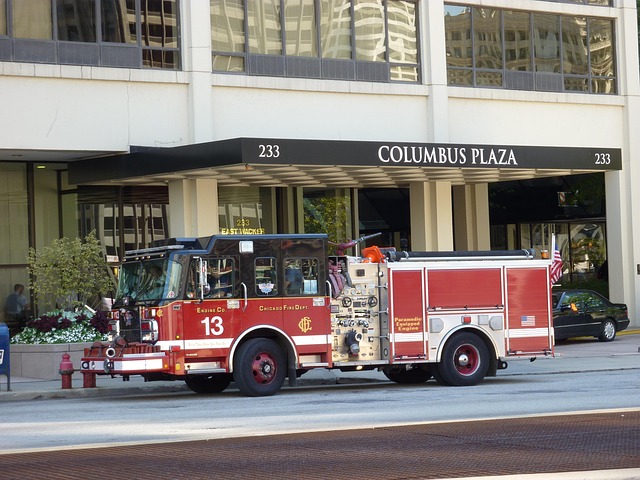Selling a fire-damaged home in Chicago offers unique opportunities through "as-is" sales, attracting buyers seeking renovation projects and providing sellers with potential cost savings. Key considerations include assessing damage, understanding local rebuilding codes, marketing strategies emphasizing transformation potential, and navigating insurance claims for both parties. This approach, showcased by successful case studies, allows sellers to avoid repair expenses while appealing to specific buyer preferences in the competitive Chicago real estate market.
“Uncover the intriguing world of as-is home sales in Chicago with our comprehensive guide. This article delves into the unique dynamics of the Chicago real estate market, specifically focusing on fire-damaged properties. Learn how various factors influence property values and explore the legal and insurance considerations involved in these transactions. Discover effective marketing strategies tailored for Chicago’s as-is properties, backed by inspiring case studies. Understand the process, challenges, and successes of selling fire-damaged homes in this vibrant market.”
- Understanding As-Is Home Sales: A Comprehensive Guide
- The Chicago Real Estate Market: Unique Considerations
- Factors Affecting Fire-Damaged Property Values
- Navigating Legal and Insurance Aspects of Selling
- Marketing Strategies for As-Is Properties in Chicago
- Case Studies: Successful As-Is Home Sales in Chicago
Understanding As-Is Home Sales: A Comprehensive Guide

Selling a fire-damaged home in Chicago can seem like a challenging process, but understanding “as-is” sales is a crucial first step for any homeowner. This type of real estate transaction involves selling properties ‘as they are,’ without repairs or renovations, and it’s particularly relevant when dealing with homes that have sustained damage, such as from fires. In the case of a fire-damaged Chicago property, buyers will assess the extent of the damage and make an offer based on its current condition, rather than its potential after repairs.
An “as-is” sale benefits both parties; sellers can avoid the costs and time associated with repairs while buyers can secure a property at a potentially lower price. For Chicago homeowners, this option might be ideal if they’re facing financial constraints or want to quickly offload a problematic property. It’s important to disclose any known issues, including fire damage, to potential buyers to ensure transparency and set clear expectations throughout the selling process.
The Chicago Real Estate Market: Unique Considerations

The Chicago real estate market, known for its vibrant and diverse landscape, presents unique challenges, especially when it comes to selling fire-damaged homes. In this dynamic city, where properties can fluctuate rapidly, homeowners facing a fire may find themselves navigating a complex process. One of the primary considerations is the potential for increased prices due to Chicago’s strong housing market, even in the aftermath of a disaster. This can make repairs and renovations more feasible but also sets a higher bar for selling a fire-damaged property.
When selling a fire-damaged home in Chicago, it’s crucial to understand local regulations and rebuilding codes. The city has stringent standards to ensure safety and quality, which can add both complexity and expense to the renovation process. Homeowners should be prepared to invest time and resources into bringing their property up to code, potentially enhancing its resale value in the long run. Additionally, working with experienced real estate agents who specialize in such cases can provide invaluable guidance throughout the as-is home sales journey in Chicago.
Factors Affecting Fire-Damaged Property Values

When it comes to selling a fire-damaged home in Chicago, several factors come into play that can significantly impact property values. First and foremost, the extent of the damage is crucial. Minor smoke and scent residue might not deter buyers as much as extensive structural harm or water damage from firefighting efforts. The location of the property also plays a critical role; areas with better access to emergency services and higher demand for housing may see less of a price drop compared to neighborhoods with limited resources.
Additionally, age and condition of the home before the fire are essential considerations. Older properties might have historical value or unique architecture that could appeal to buyers seeking restoration projects. Conversely, if the home was already in need of repairs or renovations, potential buyers might view it as a fresh canvas rather than a deterrent. The presence of insurance coverage can also influence selling points; while it may not directly affect the sales price, having adequate insurance can alleviate some concerns for both parties involved in the transaction.
Navigating Legal and Insurance Aspects of Selling

Navigating the legal and insurance aspects of selling a fire-damaged home in Chicago can be a complex process, but it’s essential for a smooth transaction. First, owners should thoroughly document the property’s condition by taking photos and videos to support any future claims or negotiations. This includes capturing both the visible damage and any structural issues revealed during inspections. Once this is done, it’s crucial to inform potential buyers about the fire damage history and any ongoing repairs or assessments. Transparency builds trust between buyer and seller.
Insurance plays a significant role in selling fire-damaged homes. Sellers should review their policies carefully, checking for coverage of smoke and water damage, as well as any deductibles or exclusions related to structural repairs. It’s beneficial to consult with an insurance professional experienced in handling such cases to understand the options available for replacement or reimbursement during the sale process. Additionally, buyers will require certain types of insurance upon purchasing a fire-damaged property, so sellers should be prepared to provide relevant information to facilitate a timely and legally sound transaction.
Marketing Strategies for As-Is Properties in Chicago

Selling an as-is property, especially a fire-damaged home in Chicago, requires a strategic marketing approach to attract buyers. One effective tactic is to emphasize the potential for renovation and the value that can be added. Highlighting the benefits of purchasing a fixer-upper, such as affordable pricing or the chance to create a unique space, can pique interest from DIY enthusiasts or investors looking for a project.
Professional photography and virtual tours are essential tools to showcase these properties. By presenting well-staged images and immersive 3D experiences, potential buyers can visualize the property’s future rather than focusing on its current state. Additionally, creating detailed listings that accurately describe any existing damage and the potential for restoration will build trust and ensure serious inquiries from qualified buyers interested in as-is real estate opportunities in Chicago.
Case Studies: Successful As-Is Home Sales in Chicago

In the competitive Chicago real estate market, as-is sales can be a successful strategy for both sellers and buyers, especially when dealing with unique properties like fire-damaged homes. Case studies of such sales in Chicago highlight several key factors that contribute to their success. For instance, a recent sale involved a historic building in the city’s Loop district, which had suffered extensive smoke and water damage from a previous fire. The seller, recognizing the potential for renovation, chose an as-is sale to avoid costly repairs and attract buyers seeking a transformative project.
The property’s unique character and location proved appealing to a buyer who specialized in restoring historical buildings. By presenting the home as a blank canvas with immense development potential, the listing agent was able to generate significant interest. The successful sale at an above-average price demonstrates that fire-damaged homes in Chicago can command high values when marketed effectively. This strategy is particularly beneficial for sellers who want to avoid the time and expense of traditional repairs while still achieving a favorable outcome.
Selling a fire-damaged home in Chicago can be a complex process, but with the right understanding and strategies, it’s achievable. This article has provided a comprehensive guide through the unique considerations of the Chicago real estate market, legal intricacies, marketing tips, and successful case studies. By navigating these aspects effectively, selling your fire-damaged property in Chicago can turn into a positive experience, ensuring the best possible outcome for both sellers and buyers. Remember, when it comes to as-is home sales in Chicago, knowledge is power.






